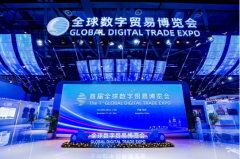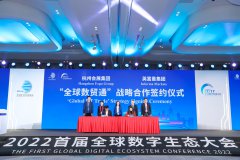The China market has been good to leading global cosmetics companies last year. The latter posted significant business growth on the back of e-commerce and customized products, which confirmed tremendous growth potential in the market, experts said.
According to the 2018 annual results of French cosmetics giant L'Oréal, sales in the Asia-Pacific region, driven by China, have overtaken North America for the first time in history, exceeding 7 billion euros ($7.92 billion).
Its sales worldwide reached 26.9 billion euros last year, up 7 percent from 2017, it said.
Stephane Rinderknech, CEO of L'Oréal China, said the performance in the Chinese market saw a strong double-digit growth in 2018.
The company attributed its success to the strong performance in e-commerce sales, especially the surge during China's Singles Day, an online shopping carnival held on Nov 11 every year, as well as "the capability to meet consumers' increasing and more diversified demands".
"Thanks to the historic shift brought about by 40-year reform and opening-up, more people are aspiring for a better life, aspiring for more premium, high-quality and international brands and products than ever before," Rinderknech told China Daily via an email.
"Accelerating urbanization, consumption upgrade and digital revolution are also creating countless new opportunities."
Japan's major cosmetics company Shiseido reported in early February that sales in the China market grew 32 percent to reach about 191 billion yen ($1.72 billion) in 2018.
The figure contributed 17 percent to the total sales of the company. Its operating profit in China surged 116 percent to reach 24.5 billion yen.
Fabrizio Freda, CEO of US cosmetics brand Estee Lauder, said in a teleconference that the current bilateral trade tensions did not influence the company's business in China as demand for luxury makeup is still strong, and the growing middle-income group in China continues to fuel its development.
Online sales in the Chinese mainland contributed one-third to its gross sales in the Chinese market, according to Freda.
Qian Bing, partner of Roland Berger, said the growth rate of Chinese cosmetics market will be about 6 to 8 percent in the following three to five years, while that of high-end cosmetics products is expected to reach 14 to 17 percent.
"More people regard high-end brands as an identity, to show they can afford a kind of lifestyle adopted by people with higher social status," he said.
Many cosmetics companies have employed local executives and allowed their China branches to make decisions on their own. The good performance last year will further encourage global headquarters to invest more on human resources and digital innovation in China, Qian said.
In fact, many cosmetics producers have conducted trails of new products in the China market and then launched them in other markets, given that China has digital-savvy consumers and offers an innovation-friendly environment, he said.
Kher Tean Chen, managing director and products industries lead for Accenture in China, said more companies have achieved growth by making brands, products and services more relevant to every customer with unique and personalized experience.
"For 50 percent of consumers, 'I love it.' is more important than 'It's useful to me'," Chen said. "To promote sales, a convenient and comfortable environment is more effective than low price."
According to Accenture's study, customers also hope intelligent devices using augmented reality and virtual reality technologies, can predict their demand and help them make buying decisions easily, he said.
Qian from Roland Berger said companies should target more younger consumers, expand their online and offline channels, and adopt technologies such as 5G, artificial intelligence, internet of things and VR to learn more about customers' preference and thus boost sales.
(Source: China Daily)




